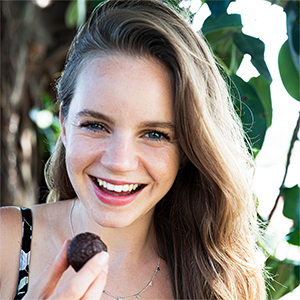Contemplating what you’d like to eat is hard enough for yourself, especially when you’re striving to eat healthily. Throw kids into the mix, and some days you’ll be lucky to get a single vegetable into them. From picky eaters, to kids who’ll only eat white foods, it definitely isn’t easy.
Yet kids nutrition is something we should be aware of…
• Australia is in the grips of an obesity epidemic, with one in five children considered overweight or obese
• 95% of school-aged children don’t eat the recommended daily serve of vegetables
• 45% of children regularly drink sweetened drinks
• 52.2% of children eat unhealthy snacks daily

Creating Healthy Habits
Pediatrician Dr. Anthea Rhodes, emphasizes that it’s not only about kids being fussy but that it’s also actually really challenging to form healthy habits, for anyone, especially children. Patience, a change in messaging and education could help.
There are a few simple do’s and don’ts to try, that are backed up by science. We all know that fruit and vegetables are healthy, and these are the types of foods we should be pushing in the direction of our children. However, perhaps that very word ‘push’ is the problem. Researchers from the University of Chicago and Northwestern University studied whether classic parental tactic food-persuasions like “If you eat spinach, you’ll grow big and strong” and “Your vegetables are healthy, and they’ll give you more energy to play” actually have the intended effect. The results of this study revealed that if the food was touted as healthy, or served any goal at all, the kids ate less of it.
Another study offered fruits and vegetables to school-aged kids and revealed that the majority of kids just didn’t eat them. Persistence with these types of food is key, as children have a neophobic response to new foods, especially plant foods; the body’s instinctive reaction as a child is “No I don’t like it.” It takes 8 to 10 separate occasions of exposure to a new food to help a child learn to like a new vegetable.
67% of parents find it hard to know how much sugar is in the content of foods they purchase.
Yet sugar is a high calorie, nutrition poor food item and a main culprit when it comes to child weight gain and health issues. The daily recommended sugar intake for children is between 12 and 24 grams per day, (3 to 6 teaspoons per day) . This would look like:
• 1 cup of strawberries
• ⅓ cup of yogurt
• ½ small banana
• ½ glass of orange juice
“Being able to sift through all the marketing around food to really understand what is actually healthy and nutritious for our children is hugely important.”
Note that this breakdown of ingredients adds up to 22 grams of sugar. Within these food items, the sugar content is all naturally-occurring, from fruit and dairy sources. While the yoghurt and juice containers purchased in a store (unless homemade) come with a label that allows you to clearly read and interpret the sugar content, fruit simply comes as is. The majority of times, fruit is a great choice. It is packed in vitamins and minerals and is fibre rich. The fibre is particularly noteworthy as it slows the release of sugar into the bloodstream, meaning it won’t cause a crazy sugar-high, like refined sugar goods will.
When it comes to packaged food items, the key lies within the nutritional information panels on the back of the packaging. Not all food panels are created the same; often manufacturers can be cheeky and communicate the sugar content based on a tiny and unrealistic serve. For this reason, it’s a good idea to refer to the sugar content per 100 grams of the product and compare this amount to the size you will be serving, which is often more than 100 grams. A general rule of thumb is to avoid foods that contain more than 12 grams of sugar per 100 grams of the product in question. Ingredients are also listed in order of weight inside the product; if sugar (this could also be masquerading as barley malt, glucose, dextrose, rice syrup, etc.) resides within the first three ingredients listed, it’s probably not the best option.
25% of parents think fruit drinks are healthier than water.
Fruit drinks contain between 6 and 12 grams of sugar per 100 ml (just under half a cup), water on the other hand contains 0 grams. This excess sugar is stored as fat within the body, messes with energy levels, encourages further sugar cravings and causes tooth decay (especially in drinks). If you are able to swap your child to drinking plain water or a low sugar drink option, such as fizzy water sweetener with real oranges and Nuvia Sweetener, or a glass of milk, you’ll be making a simple swap on the path to a healthier child straight away. Small swaps like these are often a more realistic and attainable option for parents.

57% of parents say it’s hard to know which foods are healthy choices when buying food for their family.
Opt for wholefoods wherever you can and avoid anything with a complicated ingredients list. Fruit and vegetables contain more nutrients per gram than they do calories. Minerals like iron, zinc and selenium, and vitamins including A, C, D, E and K are abundant in these plant foods. Other foods, though they contain a few more calories also pack a nutrient-punch, including legumes, nuts and seeds, eggs, yoghurt, meat, poultry and seafood. What these foods and fruits and vegetables have in common is that they can all be found along the perimeter of the supermarket; so there’s no need to even enter the shopping aisles where the processed food lies.
Good luck, go easy and keep persisting. Small everyday changes, over time, will lead to long term healthy children and adults. Hurrah!






